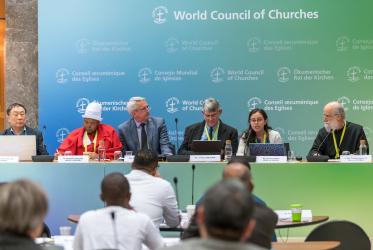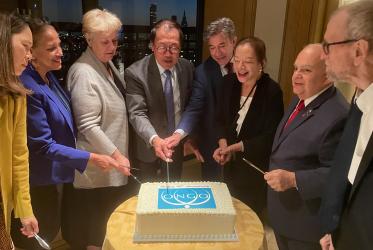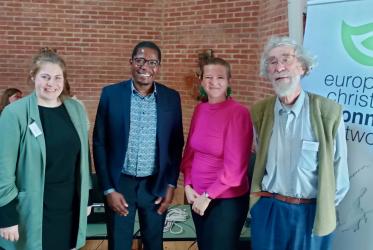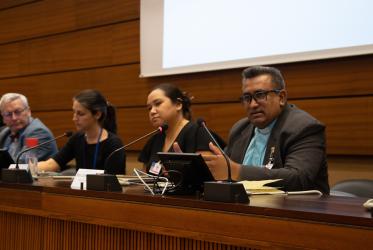Displaying 1 - 20 of 433
04 April 2024
"Mental health is a universal human right" - 13th Global Ecumenical Health Network Meeting
11 October 2023
Online
Churches march in New York City to declare no faith in fossil fuels
18 September 2023
Appelés à la Transformation - Diaconie oecuménique
24 June 2023










